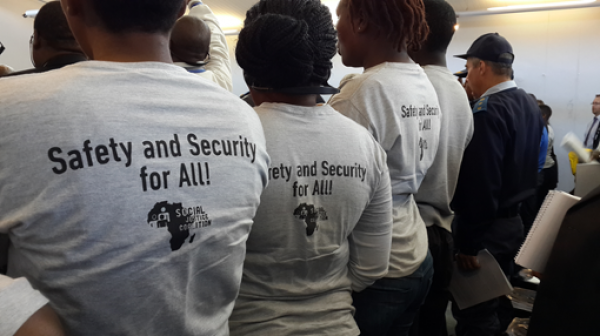What the Khayelitsha commission of inquiry has recommended

The Khayelitsha commission of inquiry into policing has made many important recommendations to the National Minister of Police. Here is a summary.
Each police station in Khayelitsha should enter into an agreement with residents, so that the community knows what to expect from the police. This should include a guaranteed minimum level of policing, such as how often victims of crime should be updated about their case or what is a reasonable response time after a call is made to the police for help.
Officers should treat residents respectfully.
A monitoring team should be established with senior police officers and civilian participation. The team would, among other things, look out for the mental well-being of officers at work.
Police station management should be made responsible for addressing inefficiencies identified at the three Khayelitsha police stations.
The number of detectives should be increased and newer detectives should be mentored. Teams should be created to address the backlog of cases in Khayelitsha.
In the long-term, detectives must be better trained and become familiar with the needs of the prosecutors and the courts. They should also provide feedback to complainants within one month of a case being opened.
Senior managers should ensure informal settlements are patrolled.
Crime statistics should be published at police stations every month.
A forum should be established to resolve disputes within the community, as low-level disputes can escalate into violent or criminal behaviour.
Suitable reservists should be recruited in Khayelitsha as soon as possible.
All members of SAPS in Khayelitsha should be able to speak Xhosa.
SAPS members should be disciplined appropriately for criminal or negligent behaviour.
Permanent appointments should be made urgently to senior positions left vacant or filled by acting members.
Recruitment should be improved to ensure those selected to join the police are mentally and emotionally suitable.
Levels of satisfaction of residents with their police station should be included when measuring police performance.
Vigilante killings must be recorded as a category of crime.
A co-ordinated approach to youth issues in Khayelitsha is needed to address the issue of youth gangs.
More research has to be done into how the community viewed unlicensed liquor outlets in their area.
Officers need to be trained in domestic violence issues and more research should be done into domestic violence in Khayelitsha.
A task team should be set up to improve the use of information technology by the police in its systems.
Internal investigations should not be limited to police station level.
The Civilian Secretariat at national and at provincial level should play an active role in monitoring the work of the three Khayelitsha police stations and the Family Violence, Child Protection and Sexual Offences (FCS) Unit. The Minister of Police should ensure that the Civilian Secretariat is resourced adequately.
SAPS and the Department of Community Safety should sign a memorandum of understanding to allow the department to continue its oversight of the police. The department should conduct unannounced inspections of police holding cells and police stations.
A meeting was urgently needed between the City, Metro Police and the management of the three Khayelitsha police stations to discuss the best way of using the CCTV cameras in Khayelitsha.
SAPS should take steps to improve the physical infrastructure of the Lingelethu West police station as a matter of urgency.
Staffing at a new police station at Makhaza should take into account the chronic understaffing of Harare police station and there should not just be a reallocation of staff from Harare police station to Makhaza police station.
The problem of backlogs in the analysis of forensic samples should be drawn to the attention of the Premier, so that it can be fixed.
Support independent journalism
Donate using Payfast

Don't miss out on the latest news
We respect your privacy, and promise we won't spam you.
Next: Eight months without electricity: Valhalla residents protest
Previous: Highest crime areas have fewest cops - Khayelitsha commission
© 2016 GroundUp. 
This article is licensed under a Creative Commons Attribution-NoDerivatives 4.0 International License.
